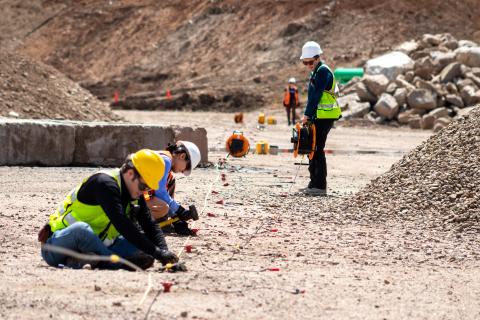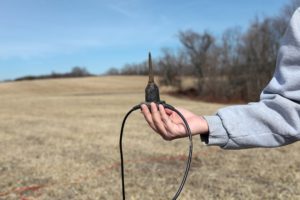All Categories
Featured
Table of Contents
Geophysical Survey Next Step In Carbon Storage Study in Landsdale Australia 2022
This work is progressively contracted out, so consultancies provide another source of employment. Consultancy firms vary in size, from really small business to large multinationals. Some consultancies are rather specialised in using specific geophysical techniques or working in particular places, while others use a more diverse variety of services to their consumers.
The extraction of gas from landfill websites is another location of work and this might grow in the future. Expedition companies might carry out work for construction companies, water business, mining companies and environmental firms, so geophysicists might be utilized in any of these settings. Other employers include: geological surveysgovernment bodies and agenciesuniversities and research study institutes.


Jobs may be listed in the oil and gas sector press. Recruitment is impacted by oil rate variations and the level of competitors for positions varies depending on this. Professions Days, which cover the full variety of geoscience careers and are generally gone to by a variety of key market employers, are run by The Geological Society.
What Does A Geophysicist Do? Role & Responsibilities in East Fremantle Oz 2023
Some of the large oil and gas companies use a complete two-year structured training program across the breadth of geophysics, consisting of the chance to experience work in various teams before specialising in one area. Your training might consist of deal with: existing wellsmagnetic and gravitational possible field data analysisresearchrock analysis. It's more usual for your initial training to be provided on the job.

There might be a probationary duration throughout which you work alongside a knowledgeable associate. Competency-based appraisals take place routinely in most companies. In smaller companies, and for academic posts, there is unlikely to be any formal training - you'll be expected to start work straightaway and get abilities as you go along.
If you work for a smaller business, you might find that you need to take responsibility for setting up and moneying your own development and training. If you have a geology degree, membership of The Geological Society can be beneficial for networking and for keeping up to date with the industry.
Geophysicist Jobs in Victoria Park Australia 2021
You may also find it useful to sign up with the PESGB (The Petroleum Exploration Society of Great Britain, which has a geophysics unique interest group. After a probationary duration, and when you've gained some experience, you might advance to senior geophysicist, then team leader and after that into a senior role in management.
The ease of movement in between roles depends upon the business structure. Research study at Masters or Ph, D level in a subject associated to geophysics or geosciences might aid with your career advancement and development. The employment market within the oil and gas market is really dependent on cost and this may impact your opportunities for profession development.
For knowledgeable geophysicists, freelance consultancy offers a good route for career advancement. As a geophysicist, you're likely to have a number of tasks throughout your working life.
Definition: Geophysical Survey in Watermans Bay Aus 2021
From geophysics, it's possible to focus on seismology (finishing additional training to become a seismic interpreter) or to move into related areas such as engineering geology or danger prediction.
Deciding what to study in college is a tough choice. Even if you know that your field of interest lies in science, what program of research study is ideal for you?
The very first step to accomplishing your objective of becoming a geophysicist is earning a degree. Even for entry-level positions in the field of geoscience, you'll require a bachelor's degree (a geophysicist college degree) from an accredited college or university. Geophysicists should be able to: evaluate rocks, photos, and other pieces of information conduct research both in the field and in labs create maps and charts of their findings write reports To achieve all this, trainees require a specialized education for geophysicist careers.
As specified above, you'll require a bachelor's degree in geoscience or a related discipline, such as a physical science or a life sciences, to land an entry-level job. Trainees can also prepare by majoring in topics like: Biology Chemistry Computer science Engineering Mathematics Physics The above geophysicist majors use a more generalized method to a single scientific discipline, however most programs need students to take one or more geology course.
Table of Contents
Latest Posts
What Is Geophysics And What Do Geophysicists Do? in Butler Western Australia 2022
Geophysical Survey - Archaeological Research in Lockridge WA 2020
Geophysical Investigations in Kelmscott Western Australia 2023
More
Latest Posts
What Is Geophysics And What Do Geophysicists Do? in Butler Western Australia 2022
Geophysical Survey - Archaeological Research in Lockridge WA 2020
Geophysical Investigations in Kelmscott Western Australia 2023